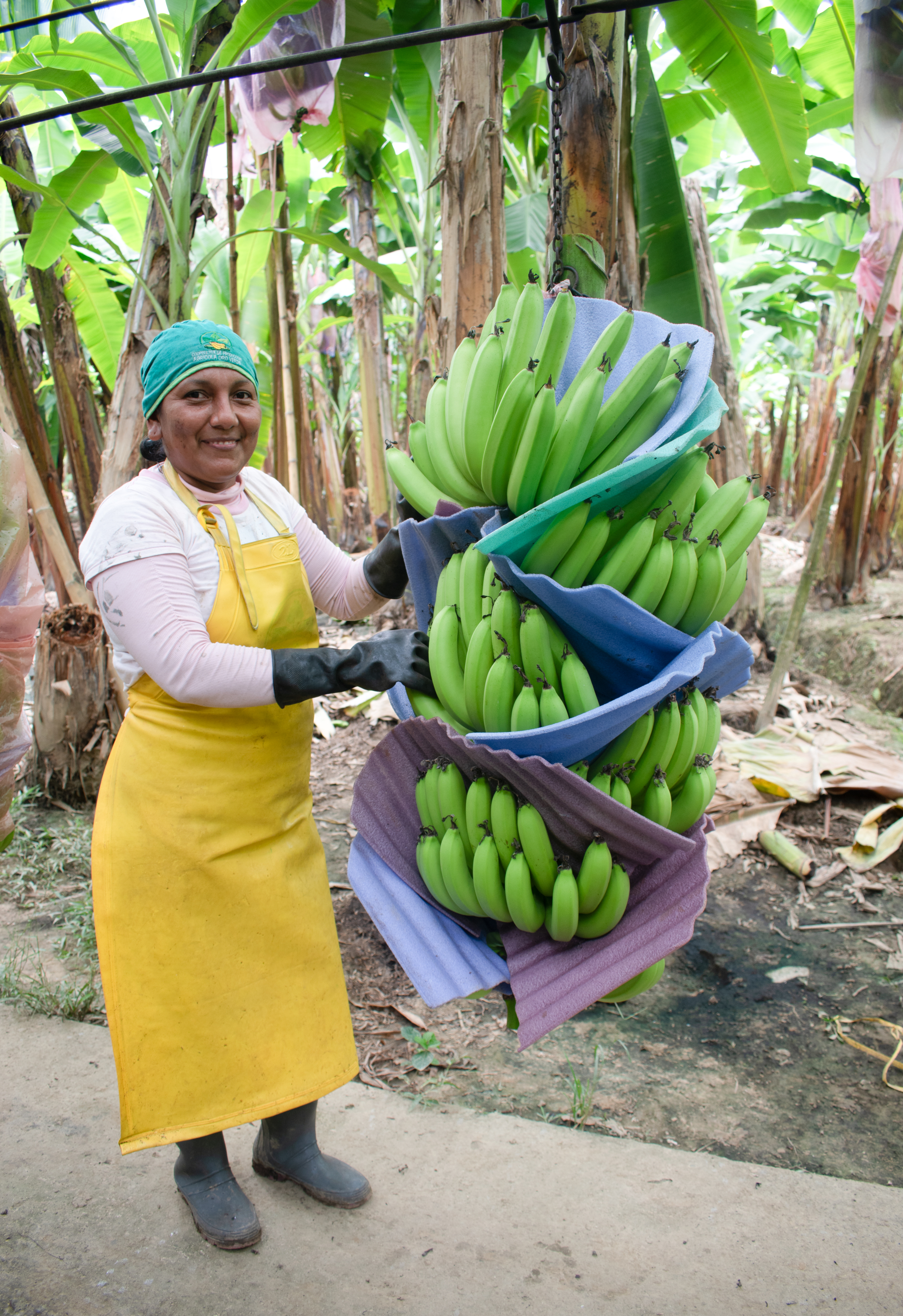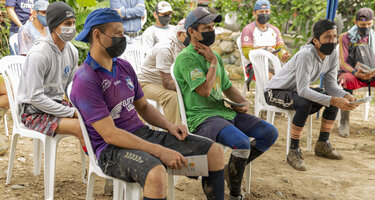CLAC and Fairtrade Explore Key Factors for Worker Well-Being
A core component of the “Towards Living Wages in the Banana Sector” project is to promote decent work throughout the banana supply chain. To support this objective, the German Retailers Working Group partnered with Fairtrade International and the Latin American and Caribbean Network of Fairtrade Small Producers and Workers (CLAC).
Fairtrade and CLAC set out to identify which factors – beyond the payment of a living wage – contribute to workers’ overall well-being. A total of 110 individuals were interviewed. The findings highlighted that respecting workers’ basic rights and responsibilities, creating inclusive, harassment- and discrimination-free workplaces, and improving living conditions for workers, their families, and communities through sustainable investments are key. These focus areas align closely with the goals of the German Retailers Working Group on living wages and incomes.
As part of this work, the “Poverty Stoplight” method was piloted again in Colombia to assess individual living standards. Using a traffic light system, the social and economic conditions of 100 workers were evaluated. Each participant developed a personal action plan to address identified gaps over a six-month period, followed by a comparison to their baseline situation. This method allows for targeted interventions that address real, individual needs.
Long-Term Goal: Collective Bargaining Agreements

Despite various supporting measures, securing living wages for banana workers remains the group’s primary goal. By the end of 2025, at least 50% of all bananas sold should be harvested by workers who earn a living wage. To help close wage gaps, participating retailers provide financial contributions. CLAC and Fairtrade were tasked with assessing suitable payment mechanisms. Three models were analyzed: two involved direct payments between employers and workers, and one explored payments via a non-governmental organization. However, the researchers stressed that the ultimate goal should be the conclusion of collective bargaining agreements. In the interim, wage gap closure could be facilitated via distribution through the Fairtrade Premium Committee.
Training HR Personnel: A Key Success Factor
Since HR departments play a crucial role in implementing labor rights at the farm level, CLAC and Fairtrade delivered training on Human Rights Due Diligence to staff from 32 farms. These sessions focused on compliance with European human rights legislation and laid the groundwork for systemic improvements.
The insights gained from working with Fairtrade and CLAC have provided retailers with a clearer understanding of the levers they can pull to ensure workers are employed under dignified conditions – and are paid wages that allow them not just to survive, but to live. These findings will inform future project activities and feed into the long-term strategies of the participating companies.
The project generated key insights and areas for future focus:
- Legal aspects of living wage payments: Further analysis is needed on payment via nonprofit entities, along with a practical step-by-step implementation guide.
- Decent work: Awareness-building is essential before assessing working conditions. Tone and approach matter for trust. Fairtrade standards often exceed local laws.
- Learning program: More focus is needed on collective bargaining, gender equity, and the fair use of the Fairtrade Premium. Horizontal dialogue between workers and management improved participation.
- Poverty Stoplight: The tool to assess personal living conditions proved effective but should ideally be implemented over eight months. Early company commitment and clear communication with workers are vital.
